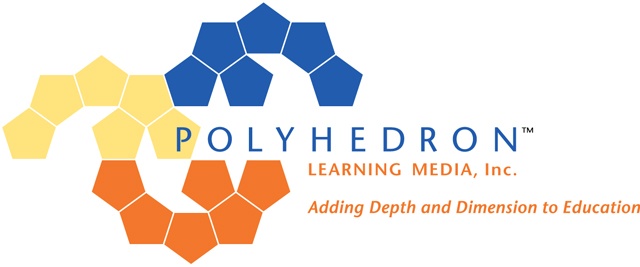Wheeling Firm Launches Virtual Physics Lab Apps
 Polyhedron Learning Media, Inc., a West Virginia educational firm based in Wheeling, recently released 13 new iPad apps for the High School Virtual Physics LabTM series. High School Virtual Physics Lab addresses the growing number of students taking high school physics and the parallel struggle of school systems to provide suitable lab experiences. The labs serve as replacements for hands-on labs when equipment is not available, or if an experiment is dangerous or time-consuming, or as supplements to hands-on labs. They are also a suitable option for students in distance learning situations.
Polyhedron Learning Media, Inc., a West Virginia educational firm based in Wheeling, recently released 13 new iPad apps for the High School Virtual Physics LabTM series. High School Virtual Physics Lab addresses the growing number of students taking high school physics and the parallel struggle of school systems to provide suitable lab experiences. The labs serve as replacements for hands-on labs when equipment is not available, or if an experiment is dangerous or time-consuming, or as supplements to hands-on labs. They are also a suitable option for students in distance learning situations.
Each app includes everything a student needs to conduct a typical experiment in a traditional high school physics course: background theory, experimental procedures, analysis and reporting tools, and pre- and post-lab assessments. Each lab also includes a video introduction that shows an overview of the lab done by a student with real equipment. These videos are a great quick-start for students as they prepare for either a virtual or hands-on lab.
Jeanne Finstein, one of the primary developers, said, “Formative and summative evaluations were conducted on the labs, involving high school and college physics teachers and high school students in three states. Results indicated no significant difference in learning between students using the virtual labs and those using hands-on labs.
“In fact, preliminary results suggest increased learning by students using the virtual labs as supplements to hands-on,” Finstein added.
Students and teachers at Wheeling Park and John Marshall High Schools were involved in testing. Other test sites were in Florida and Texas. Other project developers include John Baro, Rhonda Baro, Russ Sellers, and Dave Goodwin.
When the project is complete, 24 labs will have been developed. Textbook giant Houghton Mifflin Harcourt is marketing the apps as well as the online versions of the labs, which will be included with their highly-regarded high school physics textbook. Both the online and app versions will be featured at the upcoming annual conference of the National Science Teachers Association.
One app, Newton’s Second Law of Motion, is available free of charge. Links to all the HSVPL apps can be found here, or by searching for “HSVPL” in the iTunes Store.
Funding for the project was provided under contract number ED-IES-11-C-0029 by the Institute of Education Sciences in the U.S. Department of Education through the Small Business Innovation Research (SBIR) program.
For additional information, contact Jeanne Finstein at jfinstein@polyhedronlearning.com.
